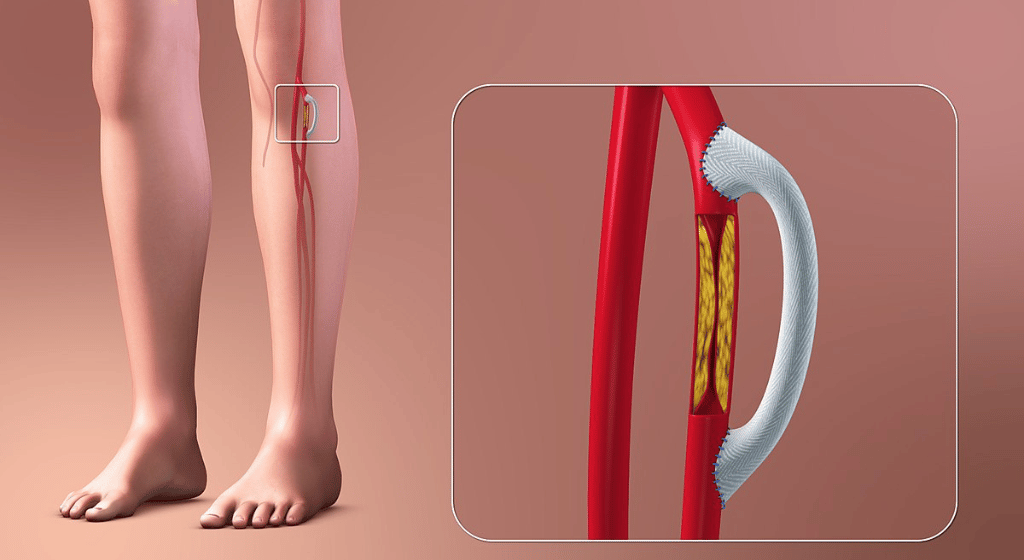Arterial Blockage: Symptoms, Causes, and Prevention Tips
Arterial blockage is a condition that can pose a serious health risk if not controlled in time. What are the symptoms and causes of arterial blockage that you should be aware of?
The body’s cells and various parts require adequate amounts of oxygen and nutrients daily to function properly. This requires that the arteries are fully open to allow the flow of blood, carrying these substances.
However, many issues can affect the circulatory system due to various factors, including arterial blockage. Are you at risk? What are the symptoms and causes of arterial blockage?
Symptoms of Arterial Blockage
Unfortunately, the signs and symptoms of arterial blockage usually do not appear until the condition has advanced and worsened. However, if they do appear, here are the most common signs that may be observed at different stages of arterial blockage:
- General Symptoms of Arterial Blockage These are the most common symptoms of arterial blockage that might appear generally:
- Chest pain
- Excessive sweating
- General fatigue and exhaustion
- Shortness of breath
- Heart palpitations
- Persistent nausea
- Lower back pain
- Erectile problems in men
- Stroke or heart attack
- Pre-Stroke Symptoms Several distinctive symptoms often appear shortly before a stroke occurs, such as:
- Slurred speech or difficulty pronouncing certain letters
- Numbness, tingling, or even paralysis on one side of the body
- Loss of vision in one eye
- Symptoms for Peripheral Artery Disease (PAD) If the arterial blockage is related to peripheral artery disease, the following symptoms might appear:
- Foot pain, especially when walking
- Gangrene
- Slow wound healing
- Visible ulcers on the feet
- Chest tightness, burning sensation, or pain
- Noticeable coldness in the feet
- Shoulder or arm pain
- Dizziness and excessive sweating
- Jaw pain, particularly in women
Diagnosis of Arterial Blockage
Here are the methods used to diagnose arterial blockage:
- Cholesterol test
- Chest X-ray
- CT scan
- Ultrasound
- Stress test
- Electrocardiogram (ECG)
- MRI scan
- CT angiography
- Angiography
Causes and Risk Factors of Arterial Blockage
In some cases, arterial blockages, whether partial or complete, can occur due to the accumulation of fats, cholesterol, and calcifications on the inner walls of blood vessels.
Here are the primary causes and risk factors that can increase the likelihood of arterial blockage:
- High levels of bad cholesterol in the body with low levels of good cholesterol
- Diabetes or pre-diabetes
- High blood pressure
- Smoking
- Constant stress and anxiety
- Obesity
- Genetic factors
- Lack of physical activity
- Poor diet
Complications and Risks of Arterial Blockage
If left unchecked and untreated, arterial blockage can lead to serious problems such as heart disease, high blood pressure, strokes, and even death.
Therefore, it is highly recommended to see a doctor immediately if you experience any of the symptoms of arterial blockage, especially in individuals who are at a higher risk.
Prevention Tips for Arterial Blockage
There are several lifestyle changes you can make to reduce the chances of developing arterial blockage and its associated risks. Here are our key recommendations:
Completely avoid alcohol consumption
Follow a healthy diet free of bad cholesterol triggers
Quit smoking and using hookah
Take prescribed medications and regularly visit the doctor for check-ups
Exercise and lose excess weight



